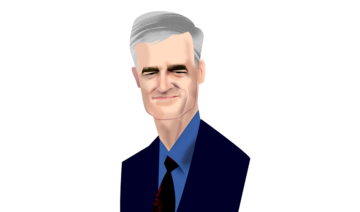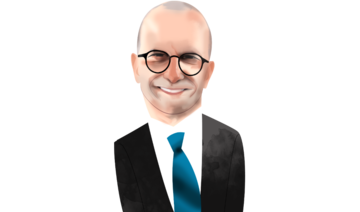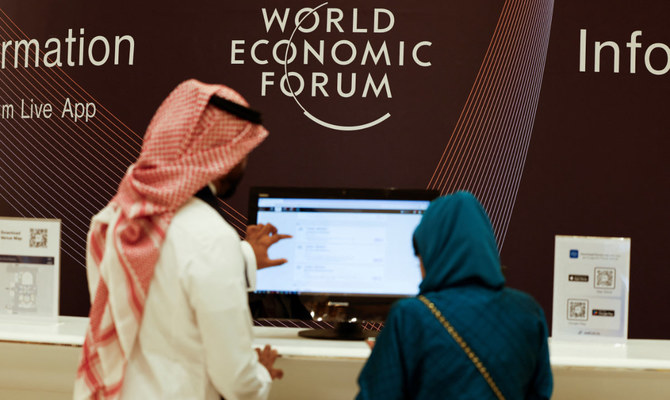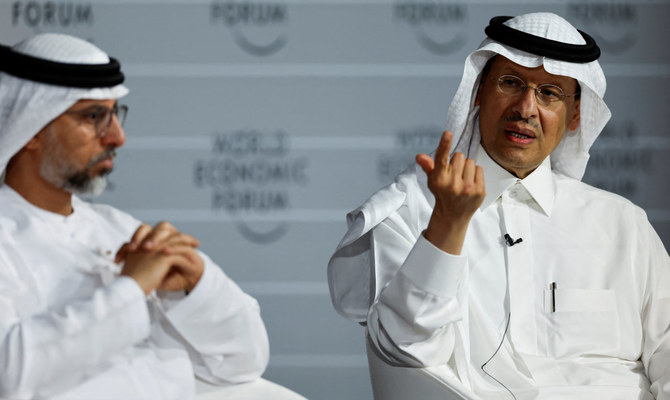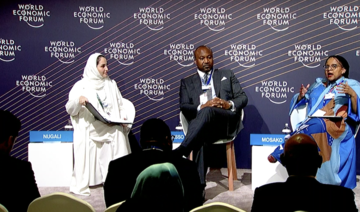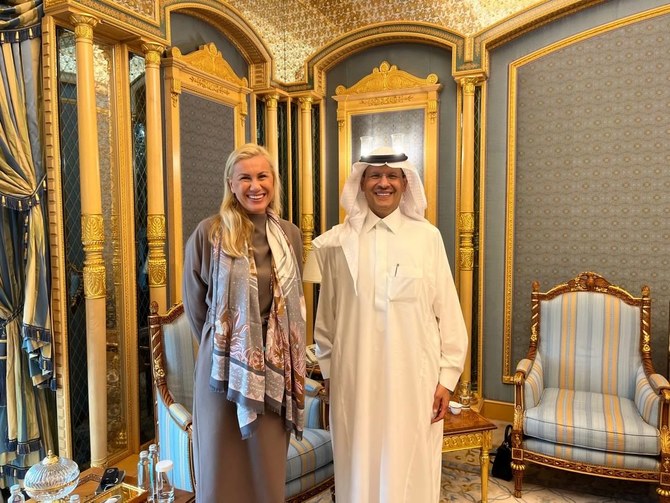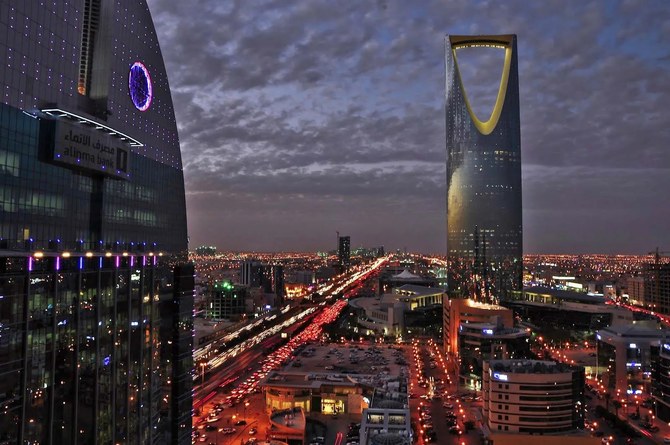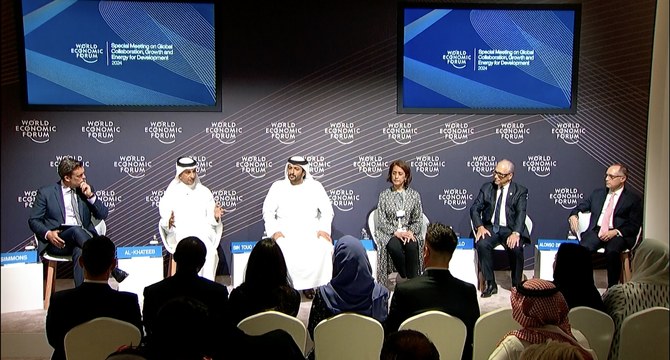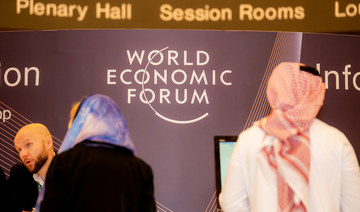DUBAI: "I’m having a fairly busy life at the moment," said Matthew Benson, a partner covering the Middle East and North Africa at auditing and consulting firm EY.
He had just presented the findings of a two-year-long study into one of the most high-profile events in the near half-century history of the UAE — the looming Expo 2020 trade fair that the country, and Dubai in particular, expects will be an economic and developmental game-changer.
“I think it’s going to be an amazing event,” Benson said, a couple of days after he had unveiled his report and had had time to assess reactions to the heavily researched work.
The headline findings were eye-catching, confirming that the UAE would get huge economic benefit from the event. Dubai won the right to stage the show back in 2013, to much fanfare, and the clock has been counting down ever since.
In 18 months’ time the doors will open on the event, which has been called the biggest gathering in the history of the Arab people. Some 25 million visits are expected to be made to the site in south Dubai, putting the UAE even more firmly on the map as a global destination.
The report by EY — formerly known as Ernst & Young — was commissioned by the organizers of the show to analyze the financial and economic benefits of the event, and confidently concluded that the Expo would indeed be a step-change in the country’s history.
In the 17-year period since the event was won up until 2031 — a decade after it closes its doors — EY found that some 122.6 billion dirhams ($33.4 billion) of gross value will be added to the UAE economy. At its peak, the Expo’s contribution will be equivalent to 1.5 percent of the UAE’s annual GDP.
A total investment of 40.1 billion dirhams will create more than 900,000 “job years” — nearly 50,000 new jobs per year — and leave the permanent legacy of a brand new mini-city between Dubai and the capital Abu Dhabi. The city, dubbed “District 2020,” will be a mixed-use conurbation with offices, residential, exhibition space and leisure facilities.
“It’ll be a new city south of Dubai, and the economic benefit will go on long beyond that time frame (2031) as well … You might get more economic benefit but that has not been included in this model,” said Benson.
What the UAE has done is they had a vision and knew that (they) had to do something bold.
Matthew Benson
However, some skeptics have argued that those benefits are not guaranteed. They point to the ambitious figure for visits — 25 million in a six-month period, with the Dubai government forecasting 20 million tourists per annum by 2020.
A viable “legacy” — a challenge faced by other Expos and big events such as the Olympics and FIFA World Cup — is not assured, the critics argue.
In addition, they point to EY’s reliance on official statistics to reach its conclusions, rather than building in other data and scenarios.
Benson, who has been working for the firm since 2013 as head of “transactional diligence” for the MENA region — rebutted those criticisms in detail.
“(The report) focuses on the impact of Expo 2020 and not on the development of the wider economy. So it’s maybe a fine distinction, but it’s based on a set of assumptions around Expo and how that would impact the economy.
“This is a forward-looking study. Really we focused on Expo and where that fits in the wider economy. It’s a macroeconomic model focusing on the incremental effects only, so it’s about what Expo has brought to the economy. It doesn’t focus on other investments that are happening. If Expo didn’t happen, this economic impact wouldn’t happen either,” he explained.
He clarified that the study — based on data from the Expo organizers and several other Dubai government departments like the transport and tourism authorities and official statistics department — is not a cost-benefit analysis of the event, weighing financial gains and returns.
“There are certain other questions that (the report) does not answer and which are not part of the aim of the study. he said.
In the early phase of the Expo project — which is currently nearing completion — the EY team expects a big boost to the UAE’s construction industry, the so-called “Expo effect,” in the UAE’s otherwise sluggish economy. “There are people working on the construction site and the Expo is happening. The impact is there. There are multiple effects going on, maybe counterbalancing the effect or maybe increasing it. Economies go through cycles over time as well,” Benson said.
When the event is up and running, the benefit will come from the spending by visitors at the site as well as in the wider Dubai economy, and also through the multiplier effect of employees specially engaged for the event.
When the curtain falls in April 2021, the Expo site will transform into District 2020, with its own internal economy. Two multinationals — German engineering giant Siemens and consultancy Accenture — have already said they will set up there, and Benson expects others to follow. The Dubai Exhibition Center will give the emirate even more capacity for the big forums and conferences, in which it is already a regional market leader.
------
BIO
BORN
•Chichester, Sussex, UK, 1973
EDUCATION
•University of Bristol, mathematics
•Duke’s Fuqua School of Business, North Carolina, US
•Goethe Business School, Frankfurt, Germany
CAREER
•With EY since graduation, working in UK, Germany and Dubai
•Currently partner and transactional diligence leaderfor MENA
-------
The site will be “repurposed” — made ready for its long-term role — but that will not involve knocking down or removing many of the extravagant pavilions and facilities currently in place or under construction. The “construction” element of the final phase is relatively small, at 1.2 billion dirhams out of a total economic impact of 62 billion dirhams, Benson said.
In the detailed technical report which accompanied the study, EY set out the assumptions on which its findings are based. Some look optimistic, others not.
For example, a projected figure of 1.5 million local and 1.1 million international visitors for the new exhibition center, and that 55 percent of the center’s total available area will be used, look like conservative calculations in the legacy phase.
On the other hand, an 85 percent occupancy for offices, retail and food and beverage developments, in a city already bulging with such facilities, looks ambitious, as does a projected 80 percent occupancy for hotels in an already hospitality-rich environment.
And who can say with any certainty that local visitors — who make up the bulk of the total projected visitor numbers — will really stay an average of 2.4 days at the Expo, or that international visitors will visit for five days?
Similarly, the EY report says with certainty that “all Expo 2020 assets are assumed to be sold off” by the end of the event, but that forecast is surely subject to market vagaries.
Are the findings of the EY report too optimistic? “I don’t really have a view on whether they’re optimistic or not. I’d rather say they’re based on a set of assumptions as presented, and they have been modeled through,” said Benson.
Did the EY team look at the track record of previous Expos? “We haven’t focused on comparing this directly with those, on the basis that this is the first in this part of the world. Previous ones were in more mature parts of the world. For example Shanghai in 2010 was a much bigger economy,” Benson explained.
The report was also criticized for being based only on “best case scenario” figures prepared by the government, with no alternative factors — such as geopolitical or economic volatility — modeled through.
“It’s difficult to say what’s ‘best case’ and what’s not. This is all forward-looking and there’s no real range on outcomes. This is in the middle of what you’d expect to happen — it could be higher than this, it could be lower than this. The assumptions are set out as best we can. We have not assumed any real variation in the economic outlook. We haven’t taken a view on the UAE economy or the global economy. It’s based on today,” Benson said.
He did allow, however, that economic fluctuations might affect the outcome, although EY economists did not model these factors in preparing the report.
Benson, who spends a lot of time in Saudi Arabia as part of the EY team advising on various aspects of policymaking, believes that the Kingdom can learn and benefit from the Expo experience as it gets on with its own program of big events and projects.
“I think there’s a lot that Saudi Arabia is doing really well, but one can always learn. Saudi Arabia is already doing big projects and events. NEOM is one, but there are others like Formula E, the recent golf event and others. They’re much shorter than a six-month event like Expo. But they’re already doing quite a lot,” he said.
Benson expects the Expo will permanently change the way the world looks at the Middle East.
“What the UAE has done is they had a vision and knew that (they) had to do something bold,” he said. “It’s not just organic, it’s a big splash, a big push. It’s consistent with their vision to do something profound for Dubai.”




